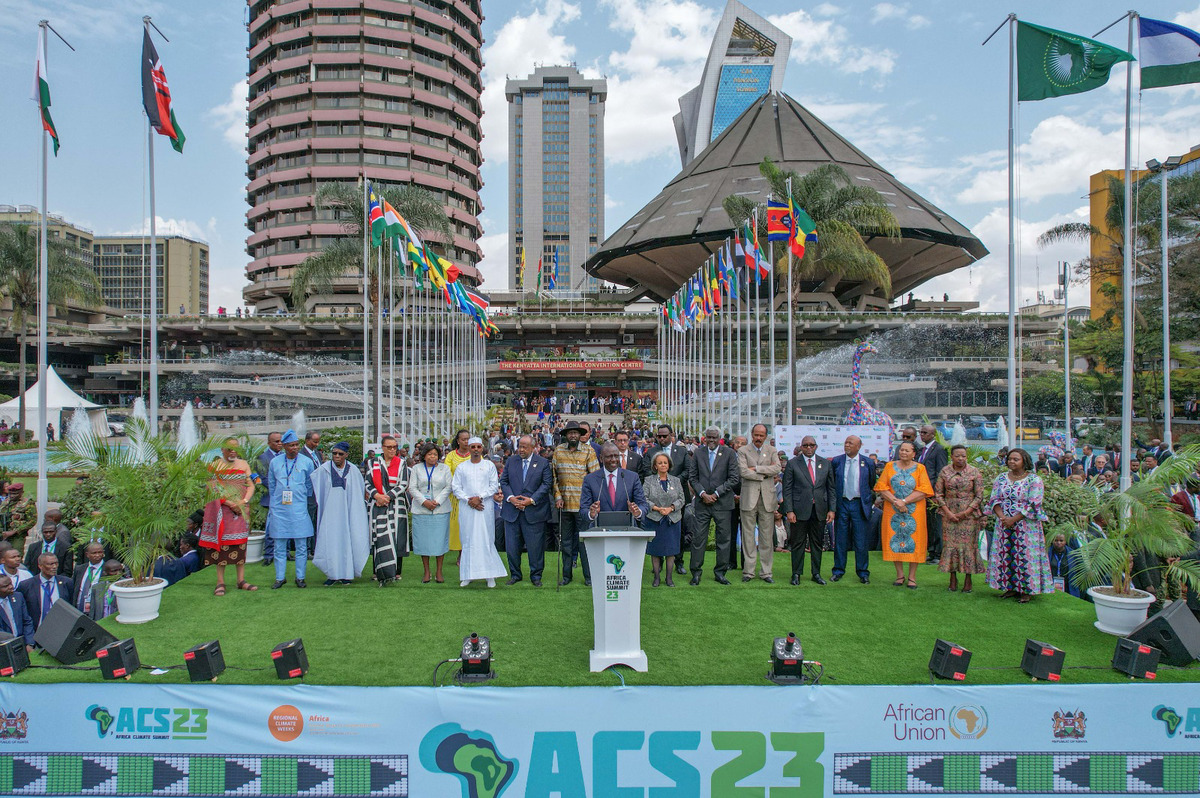Nairobi Declaration on climate change endorsed carbon tax on shipping
African leaders pushed for global carbon pricing “including a carbon tax on fossil fuel trade, maritime transport and aviation, that may also be augmented by a global financial transaction tax".
 PHOTO: African leaders sign Nairobi Declaration on Climate Change and Call to Action. Republic of Kenya
PHOTO: African leaders sign Nairobi Declaration on Climate Change and Call to Action. Republic of Kenya
African leaders concluded the African Climate Summit by signing the "Nairobi Declaration on Climate Change and Call to Action" that called for more aggressive climate financing mechanisms.
The signatories urged world leaders to invest in Africa's natural resources and come up with global carbon taxation as a new pricing mechanism at COP28. The leaders suggested this could help reduce Africa's debt burden and unlock climate funding for the continent, which in turn would boost global decarbonisation.
A carbon tax regime including a global financial transaction tax (FTT) would provide finance to scale up "climate-positive investments" and shield any tax increases from "geopolitical and national interests", the Nairobi Declaration explained.
This declaration will form the basis for Africa’s negotiating position at the COP28 climate summit in December.
“Underlining that Africa was not historically responsible for global warming, but bore the brunt of its effect, impacting lives, livelihoods, and economies, the leaders emphasized that the continent possessed the potential and the ambition to be a vital component of the global solution to climate change,” the UN reported.
Nairobi Declaration’s recommendation follows European Commission President Ursula von der Leyen's recent appeal to world leaders to come up with a proposal for global carbon pricing and true carbon credits at the COP28 summit.
Meanwhile, the EU has also been among the majority of IMO member states and shipping organisations that have persistently urged the IMO to make shipping polluters pay for their emissions. The IMO agreed to consider adopting a carbon tax as a mid-term economic measure in 2025, with an aim to implement it in 2027.
By Konica Bhatt
Please get in touch with comments or additional info to news@engine.online





